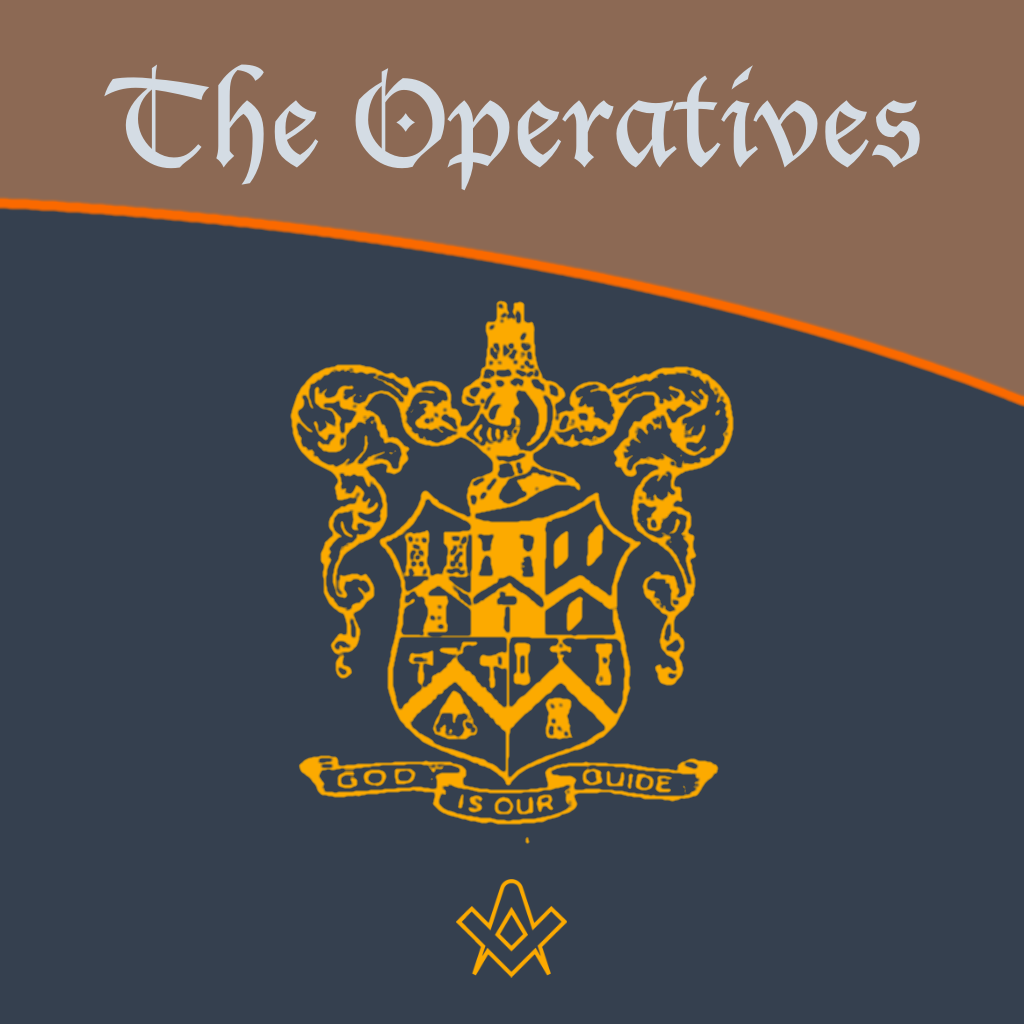Most Freemasons have heard the terms ‘Operative’ and ‘Speculative’ Masons, and hopefully understand the difference:
‘Operative’ – having to do with physical operations e.g. working = a skilled operative craftsman, artisan.
‘Speculative’ – involving, based on, or constituting intellectual speculation also: theoretical rather than demonstrable speculative knowledge.
Source: Merriam-Webster

From the official website of The Operatives:
An invitational body dedicated to the preservation of the history and workings of operative guild masonry.
We are a Masonic Society which exists to perpetuate a memorial of the practices of operative Free Masons existing prior to modern speculative Freemasonry.
Membership of the Society is restricted to those who are Master Masons, Mark Master Masons and Holy Royal Arch Companions in good standing.
It is governed by three Grand Master Masons,
Eligibility
The Society is open only to Freemasons who are in good standing with or are members of a Craft Lodge, a Royal Arch Chapter and a Mark Master Masons’ Lodge.
The regalia is minimal and consists of a blue cord or blue collarette from which is suspended the badge of the member’s grade.
Badges are simply exchanged as progression is made. All members wear the distinctive Society tie.
Lest we Forget!
The Society has ordinarily generated considerable loyalty and affection among its members and, in addition to the merits of its ceremonies and practices, one reason is that the Society fills a notable gap in the masonic structure.
Speculative masons are happy to trace their origins to the practices of the ancient stone masons, but many then tend to forget all about them.
The Operatives exist to ensure that we do not all forget!
An Overview of the Order
written by – Rt W. Bro. DON FALCONER, VII°
[reproduced with permission from The Operatives]
Operative or Guild Masons were organized in England with royal approval dating at least from as early as the Grand Assemblage of 926 in York, which is reputed to have been authorized and encouraged by King Athelstan.
As a result of the general decline in Guild masonry, only a few operative lodges were still active in the early 1900s.
Fearing that their teachings and ceremonials might eventually become lost, several operative lodges of the York Division decided that positive action should be taken to obviate this possibility.
Under the authority of the York Division, the Channel Row Assemblage was reconstituted under the present title at Bedford House, in London, on 21st May 1913.
The Worshipful Society of Freemasons is governed by a Grand Assemblage, which is based in London and presided over by three Grand Master Masons.
Qualifications For Membership And Degrees Worked
Membership is restricted to regular freemasons who are Master Masons, Mark Master Masons and Royal Arch Masons in good standing. For promotion beyond the Vº, a member must have been installed as a Master in a Craft Lodge and also in a Mark Lodge. There are seven degrees in all, as follows:
Iº Indentured Apprentice
IIº Fellow of the Craft
IIIº Fitter and Marker
IVº Setter Erector
Vº Intendent, Overseer, Super Intendent and Warden
VIº Passed Master
VIIº Master Mason and Grand Master Honoris Causa
Assemblages And Lodges
Assemblage includes the Stone Yard and Lodge of each of the degrees from the First to the Third and also the Erection Site and Lodge of the Fourth degree.
Each Assemblage is presided over by a Deputy Master Mason representing the three Grand Master Masons who ipso facto are the masters of every lodge.
The Deputy Master Mason has two deputies and all three must be Passed Masters VIº. A Vº Lodge is presided over by a Deputy Master Mason and a VIº Lodge by a Senior Passed Master.
Each of these presiding officers has two deputies. The VIIº Lodge is presided over by the three Grand Master Masons.
The appointment of all Deputy Master Masons and Senior Passed Masters is the prerogative of the three Grand Master Masons and each continues in office until a successor is appointed.
The Deputy Master Masons of Assemblages usually preside for one year, but the Deputy Master Masons Vº are usually appointed for three years and the Senior Passed Masters and Deputy Grand Master Masons for five years.
Procedures For Joining The Worshipful Society And Progress Within It
Freemasons having the required qualifications may enquire of any member of the Worshipful Society if interested in becoming a member.
Many of those who join have been recommended to the Assemblage by members and have been invited to join after favourable consideration by the members of the Assemblage.
All applications for membership are subject to a ballot of the members present in open Assemblage. Meetings of an Assemblage are held quarterly, but additional meetings may be convened in special circumstances.
Progress through the degrees and promotions to office are based on merit. In addition, certain minimum periods of service are prescribed for qualification for promotion in the progressive degrees, as follows:
Iº to IIº – The next following meeting of the Assemblage
IIº to IIIº – At least one intervening meeting of the Assemblage
IIIº to IVº – At least two intervening meetings of the Assemblage
IVº to Vº – At least three intervening meetings of the Assemblage
Vº to VIº – At least forty-eight weeks after promotion to Vº
VIº to VIIº – At the sole discretion of the three Grand Master Masons
Work Within The Assemblages
Although the work carried out within the Assemblages is similar in many respects to that carried out in the Masonic orders of which membership is a prerequisite to becoming a member of the Worshipful Society of Freemasons, nevertheless there are some significant differences.
The origins of the various degrees of speculative freemasonry will become evident to candidates in the various operative degrees, although no attempt is made to correlate the several systems.
The old charges and explanations are given in their original forms, but much of the work that has already been carried out in the speculative degrees is not repeated.
The purpose of the Worshipful Society is to perpetuate the ancient operative workings to the extent that they can be established beyond doubt.
In this respect, membership of the Worshipful Society can greatly enhance a speculative freemason’s understanding of the ceremonials in which he has participated and of the rituals that he has learnt.
From the foregoing it will be evident that the work of the Worshipful Society provides an important, if not essential, conclusion to the work of the Craft, the Mark and the Royal Arch.
Moreover, it also relates directly to the work of the Cryptic Rite and some of the Allied Masonic Degrees.
Grand Rank and Past Rank
There is neither Grand Rank nor Past Rank in the Worshipful Society. A member’s rank is signified by the degree that he holds. In earlier times the three Grand Master Masons traditionally held office ad vitam, but nowadays they waive that right.
The First Grand Master Mason shall retire after five years and the Second Grand Master Mason after three years, although each may be reappointed for a further period.
The Third Grand Master Mason ceases to hold office when the Ancient Drama is re-enacted at the annual General Assembly.
All Deputy Master Masons, Senior Passed Masters, Deputy Grand Master Masons and Grand Master Masons use these titles only during the tenure of their offices – they are not subsequently accorded the title “Past”.
Download the Operative Centenary Celebrations Booklet.pdf HERE
Video The Operatives
1st GMM Presentation of the Order in Freemasons Without Borders – 20 Oct 2020
Video
Ancient Drama & Investiture of GMMs of The Worshipful Society of Free Masons
For more information visit:
Contact:
The Operatives
David Joyce, Grand Clerk
27, Watkins Court
Old Mill Close
Hereford
HR4 0AQ
Recent Articles: membership
 Progression through the Degrees; a Rite or a Privilege? Exploring the layered journey of Freemasonry, Matt DA Fletcher probes the essence of progression—whether it's a mere rite or a privileged path. Delve into a nuanced perspective where every degree is not just a milestone but a fraction of a grander continuum. |
 Quantity vs Quality within the world of Freemasonry Dive into the compelling debate of quantity vs quality within the world of Freemasonry. Discover the transformative focus on attracting members aligned with the institution's values, promising not only growth but quality growth. High-value individuals assure sustainable development with their commitment to serving the brotherhood. |
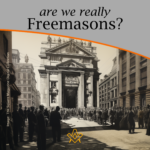 Maybe Freemasonry has opened its doors too wide. Perhaps some have not understood that the survival of Freemasonry in order to achieve its sublime purpose lies not in the number of members it has, but in their quality. Maybe we need less members and more Freemasons. Less men in Freemasonry and more Freemasonry in men. |
 What is ritual and why is it important? P1 Delve into the profound world of Freemasonry rituals and their significance. This insightful piece unravels the underlying importance of rituals, their impact on participants, and the transformative power they hold. Uncover why these centuries-old traditions remain integral to Masonic practice today. |
 Could Freemasonry be helpful for young men? Unravel the Masonic Brotherhood: Could Freemasonry be the antidote to modernity's challenges for young men? Dive in as we explore the Masonic world, its principles, camaraderie, and how its traditional rituals could help forge stronger identities in an increasingly complex world. |
 Discover the remarkable benefits of Lodge Meetings on your well-being. From fostering connections to combating stress, learn how these male-oriented gatherings offer an antidote to anger, hunger, isolation, and exhaustion. Dive into the power of shared experiences, understanding, and camaraderie. Your key to improved mental health awaits inside. |
 Tutorial for a Worshipful Master Unlock the Secrets to Leadership Mastery in our Worshipful Master's Tutorial! Brother Antonio Biella shares step-by-step guidance for Masonic Lodge leaders on honing their roles, duties, and future vision. Discover how to drive growth and engagement in your Lodge, setting ambitious goals and inspiring member participation. |
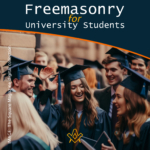 Freemasonry for University Students What are social skillset challenges facing students when they graduate from university ? |
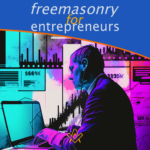 How the Core Values of Freemasonry; Brotherly Love, Relief and Truth Can Be Applied to Improve Productivity For Entrepreneurs |
 Why I became a Freemason: a personal journey of self-improvement Salik Tariq shares his reasons for becoming a Freemason – a journey of self-improvement, finding a community, and personal growth. |
 Freemasonry: Coming out of the Cloisters This paper examines the fundamental tensions on the lines of religion, gender and political ideology that exist in some jurisdictions of Freemasonry. It is on the first of these, religion, on which he makes an initial and exploratory focus. - by Gerald Reilly |
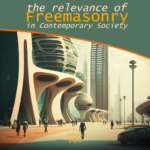 The Relevance of Freemasonry in Contemporary Society The role of Freemasonry in contemporary society is an indispensable one. Despite the challenges and misconceptions it faces, the organization remains steadfast in its humanitarian pursuits and commitment to personal growth and self-betterment. Through its efforts to evolve and adapt to the changing needs of its members and the world, Freemasonry continues to be a vital force in shaping a better future for all. |
 Has Freemasonry managed to revive and thrive after the darkness of the Pandemic? Robert Lomas gives us some (promising) insights. |
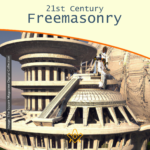 21st Century Freemasonry – a Sign of the Times? A recent article in The Times of London highlighted the dilemma 21st Freemasonry is facing. In this article one Master Mason shares his views of the strengths, and the challenges of modern Masonry. |
 A concept that is both based on our Freemasonic rituals and what we understand as teamwork. This article by Chris Batty examines why teamwork in the lodge is the network that binds us. |
 Lebanese Freemasonry has been both witness to and sometimes participants in turbulent events and forces, which shaped and influenced their world. |
 Is a Masonic Tradition Necessary? Dealing with Masonic tradition is a complex subject that requires careful analysis in order to reach a balanced point on the best etymological definition and the set of discourses and practices, which often end up being presented as such, without, however, presenting bases that support them, often serving only as a discourse that restricts and controls the masses. Fernando Rodrigues de Souza debates this complex subject. |
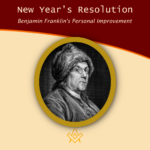 New Year's Resolution with Benjamin Franklin's Personal Improvement Are you ready for a new year's resolution challenge ? To accomplish his life’s goals, at 25 ( around 290 years ago ), Benjamin Franklin developed and committed himself to a personal improvement program that consisted of 13 virtues. You are invited to join me in practicing his daily routine for 2023. |
 The Alberta Masonic Higher Education Bursary Fund is to help the next generation of Albertans, our children and grandchildren, to obtain the education they need to lead successful lives and contribute to the welfare of mankind. As you can see from this little lesson of our history, education is truly a Masonic obligation. |
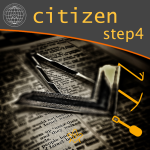 To be a Better Citizen of the World: Step 4 A value proposition for Pure Ancient Masonry as defined in terms of Citizenship; the allegories, symbolism and lessons are a blueprint for all Freemasons to be a better citizen of the world. |
 To be a Better Citizen of the World; Step 3 A value proposition for Pure Ancient Masonry as defined in terms of Citizenship; the allegories, symbolism and lessons are a blueprint for all Freemasons to be a better citizen of the world. |
 In connection with recent article about Freemasonry in the metaverse, we look at how an Egregore applies to Freemasonry in a digital world |
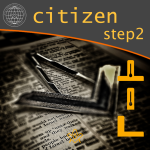 To be a Better Citizen of the World; Step 2 A value proposition for Pure Ancient Masonry as defined in terms of Citizenship; the allegories, symbolism and lessons are a blueprint for all Freemasons to be a better citizen of the world. |
 There are many brotherhoods in the world, and Freemasonry is one of the most significant and successful of them all. This article will be the focus two questions: the importance of brotherhood ? and is there room for improvement in Freemasonry? |
 Intergenerational relations in Masonry: challenges and possibilities Backed with scientific research, Professor Luiz Neto and Professor Alexandre Braune investigate the Intergenerational relations in Freemasonry and explores the challenges and opportunities. |
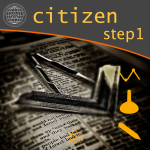 To be a Better Citizen of the World; Step 1 A value proposition for Pure Ancient Masonry as defined in terms of Citizenship; the allegories, symbolism and lessons are a blueprint for all Freemasons to be a better citizen of the world. |
 The Masonic Temple is a platform where both Freemasons and non-Masons, enthusiasts of real art and spiritual growth, connect to the new world of the metaverse. A Freemasonry in the metaverse project, based regular freemasonry principles. |
 Opportunity to fix the Sussex fudge Is there a value proposition for members, that under English Constitution Freemasonry, we have a 4 part offering; Entered Apprentice, Fellowcraft , Master Mason and Companion, conducted in a single craft lodge ? |
 Value Proposition of Freemasonry In addressing declining lodge membership and lack of attendance, we need to assess the value it offers to members. What is value, and what does it mean to you? |
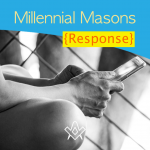 What is a 'Millennial' and what do they want from Freemasonry? You'll be surprised at the answers. |
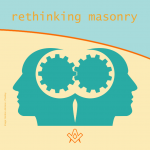 Let us help answer a fundamental question, from a confused newly raised brother asking “What does it all mean and where do I go from here?” |
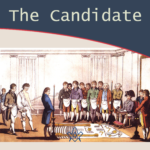 Written in 1930, much of the advice is still relevant today - although some may provoke further thought or debate! |
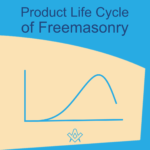 Product Life Cycle of Freemasonry An inconvenient truth about the product life cycle of Freemasonry |
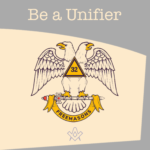 Freemasonry is local. This is where we need to start. We start with our Facebook friends, our neighbours, our colleagues, our lodges… |
 Freemasonry in the time of pandemic The Rule of Six. Localised lockdowns. Second wave? What do we do now?! The answer is simple - engage with members, promote Masonic education and get thinking outside the lodge. |
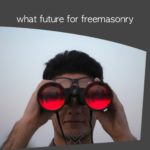 The current functioning of the Masonic movement has some positive aspects and others that are blatantly backward and counterproductive. |
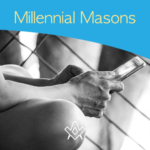 What is a 'Millennial' and what do they want from Freemasonry? You'll be surprised at the answers. |
 How to improve your Lodge Membership Marketing Program. |
 The Anti-Social Impact of Social Media The 'dark side' of social media and its negative effect on our mental health |
 If Freemasonry cannot meet, is this an opportunity to make a change to how we do things? |
 Has your lodge accepted an unknown candidate from the internet? Third in a three-part series looking at the process to accepting candidates via the internet |
 Is the brother of a brother a brother ? Rights to visit - recognition and regularity re-evaluated. |
 The second article in the Unknown Candidate series - Outlining the social media marketing process to attract the unknown candidate to make that first enquiry |
 Ask a random Freemason the purpose of Freemasonry and the likely response will be to “make good men, better”. Research undertaken by James Justin Davis Pennsylvania Academy of Masonic Knowledge. |
 Has your lodge accepted an unknown candidate from the internet? First in a three-part series looking at the process to accepting candidates via the internet |
 Mental Health - Raising its awareness and how we as Freemasons throughout the entire UK can help our fellow brethren and their families when they need it. |
 Share one thought why freemasonry is relevant today - Open question posted on Facebook with a very wide range of responses from Brethren across the globe |
 The Tipping Point of Freemasonry Why do brothers lose interest in Freemasonry and what can we do to get that spark back? At what moment did our own thoughts begin to waver? |
masonic knowledge
to be a better citizen of the world
share the square with two brothers

click image to open email app on mobile device



